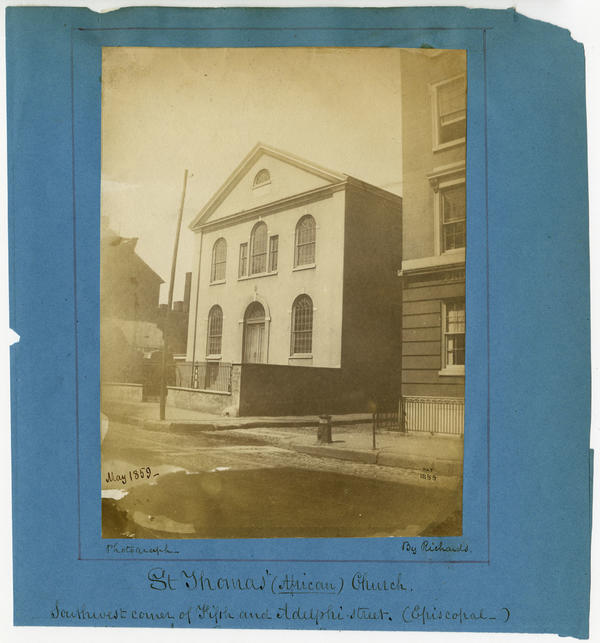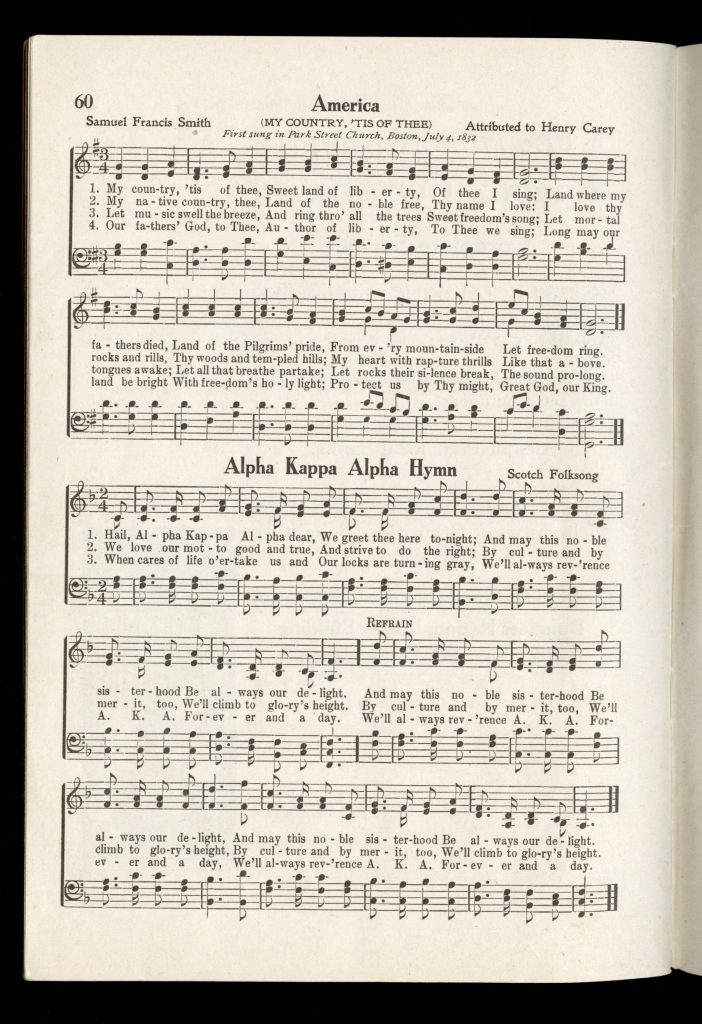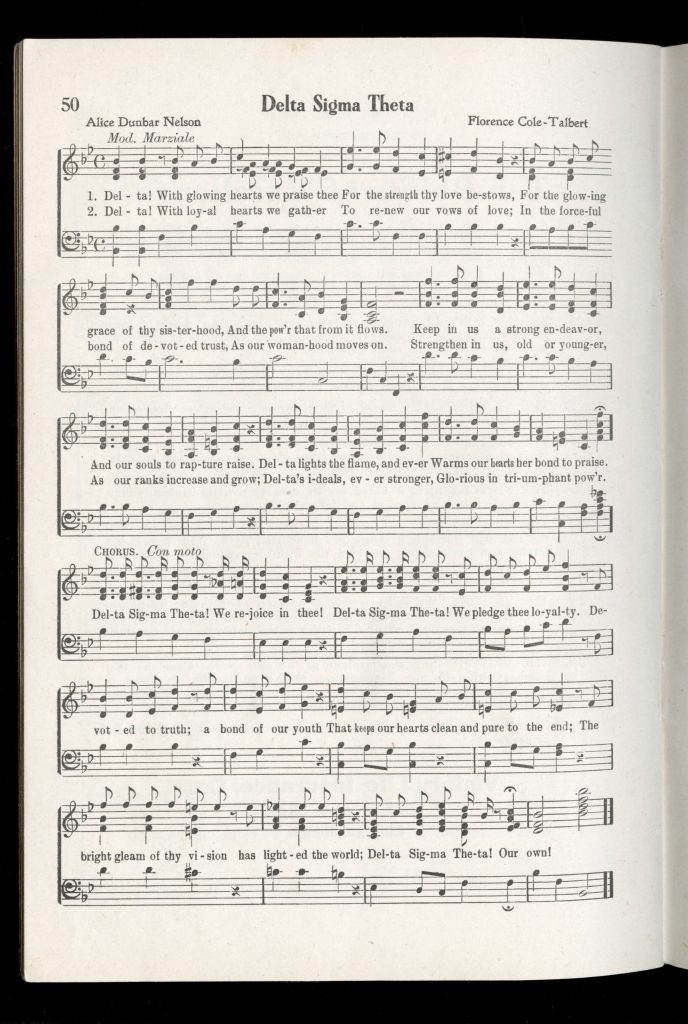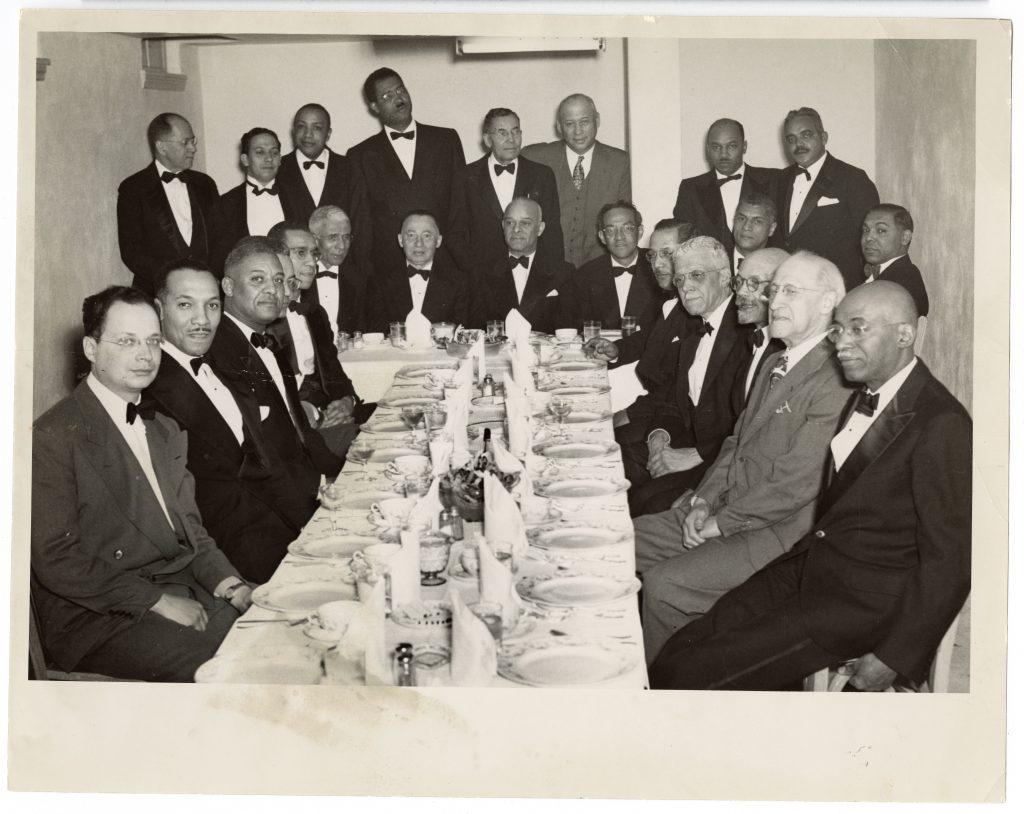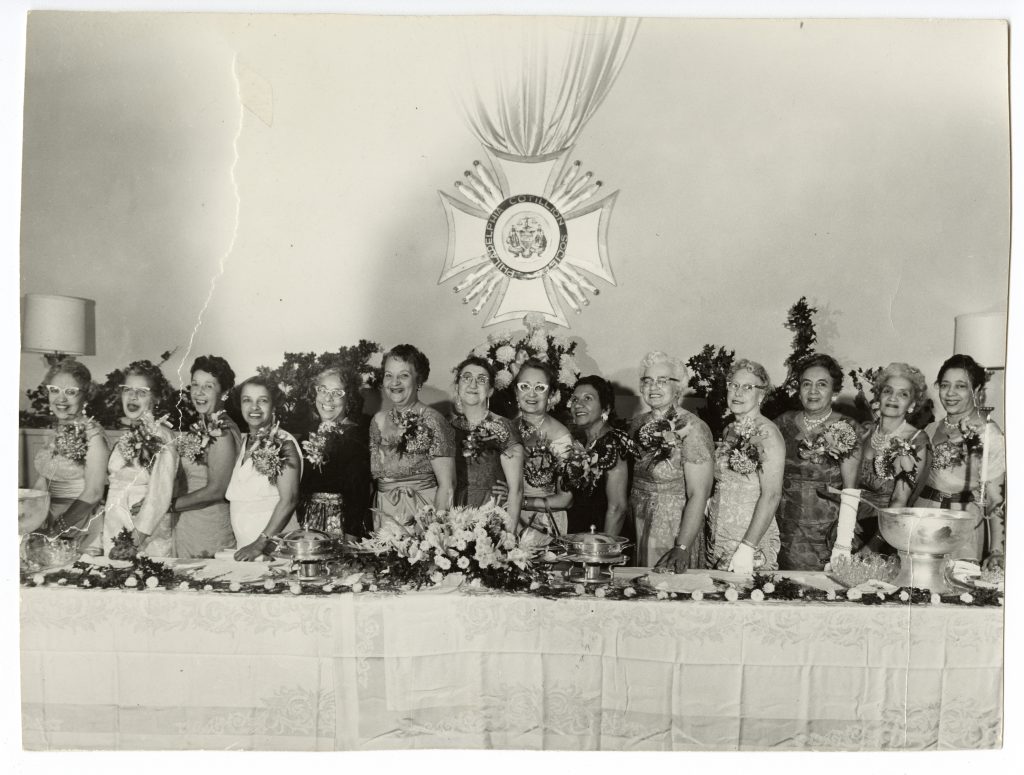What We Could Do Together
The civil rights cases of 1883 ruled against enforced racial segregation. Five African Americans claimed they were illegally denied access in public spaces. The supreme court ruled that the Civil Rights Acts of 1875 which prohibited entry into a public space based off race was unconstitutional. The increase in Jim Crow laws peeled back the many civil rights gains that had increasingly protected African Americans during Reconstruction. These racial laws segregated African Americans from education, religious and social gatherings, and financial opportunities.
African Americans were forced to create their own organizations. Religious and literary societies were among the earliest groups formed to fight against oppression, create a shared identity, and organize education and political strategies for the masses. In the 20th century, African American students created fraternities and sororities to educate and uplift African American college students.
F. De B. Richards, St. Thomas’ (African) Church ([Philadelphia, 1859]). Photograph.
LCP 2526.F.151
Richard Allen and Absalom Jones founded the Free African Society as a mutual aid society and club for free African Americans in Philadelphia. St. Thomas African Episcopal Church, founded in 1794 as an outgrowth of the Society, was among several churches established to combat discriminatory practices of the city’s congregations. The society aided the sick, widowed, and orphans, assisted with yellow fever epidemic, and helped establish other mutual aid societies within the Black community.
Songs and Spirituals of Negro Composition: also Patriotic Songs, Songs of Colleges and College Fraternities and Sororities (Chicago, 1928). Gift of Mary Hinkson Jackson.
LCP OK A5063.O.24
This composition book consists of a popular selection of religious spirituals as well as songs from colleges, fraternities, and sororities. They were compiled for the “express purpose of preserving such excellent and classic manifestations of their struggles, attainments and aspirations, their joys and their sorrows.” Displayed is the Alpha Kappa Alpha and the Delta Sigma Theta national hymn.
Alpha Kappa Alpha Sorority, Inc. is the first intercollegiate historically African American Sorority, founded January 15, 1908 at Howard University. Its mission is “to cultivate and encourage high scholastic and ethical standards, to promote unity and friendship among college women, to study and help alleviate problems concerning girls and women in order to improve their social stature, to maintain a progressive interest in college life, and to be of ‘Service to All Mankind’.”
Delta Sigma Theta Sorority, Inc. was founded January 13, 1913 at Howard University to “promote academic excellence and to provide assistance to those in need.” Their first act of public service was their participation in the Women’s Suffrage March in Washington, D.C. March of 1913.
[Steven-Cogdell/Sanders-Venning Hinkson family group portrait collection], (1929-1950). Gelatin Silver. Gift of descendants Cordelia H. Brown, Lillie V. Dickerson, Mary Hinkson Jackson, and Georgine E. Willis in honor of Phil Lapsansky.
LCP P.2015.46.4
Founded in Philadelphia in 1904, the Sigma Pi Phi Fraternity, or Boulé, is the first non-collegiate Greek-letter fraternity for African Americans. The society was created for African American professional men to provide leadership, support their careers, and maintain social connections that enhanced the Black community.
Here is a 1950 group portrait of some Boulé members, including Dehaven Hinkson, Richard J. Warwick, and Eugene T. Hinson.
[Steven-Cogdell/Sanders-Venning Hinkson family group portrait collection], (1929-1950). Gelatin Silver. Gift of descendants Cordelia H. Brown, Lillie V. Dickerson, Mary Hinkson Jackson, and Georgine E. Willis in honor of Phil Lapsansky.
LCP P.2015.24.2
The Geace Club was a women’s social group in Philadelphia that evolved from members of the Sunshine Club. This is a 1955 group portrait of Geace members, possibly during their golden anniversary, including Mary Venning, Martha Venning Bowie, Agnes Chew Upshur, Dorothy Abele Gatling, Mabel Lawson Warrick, and Cordelia Chew Hinkson.
